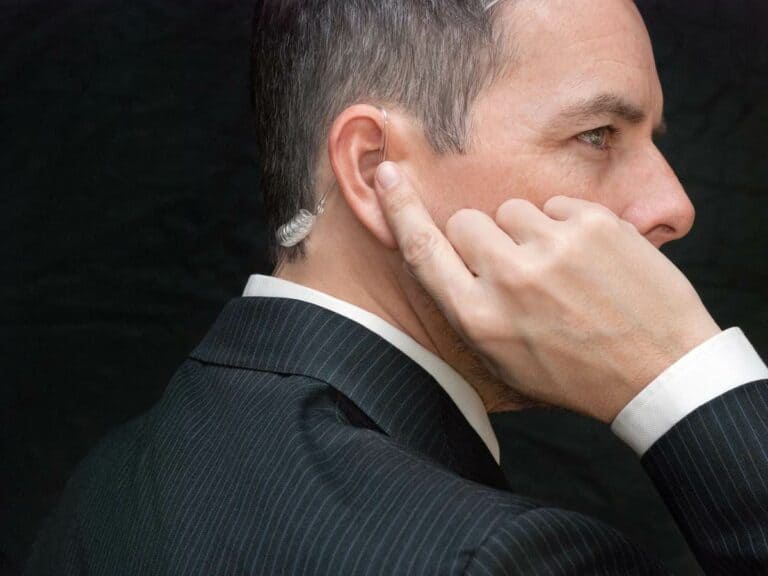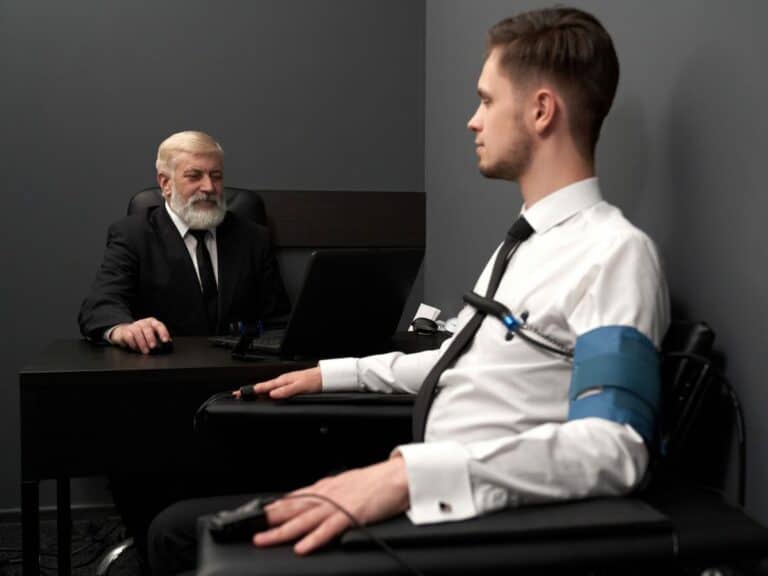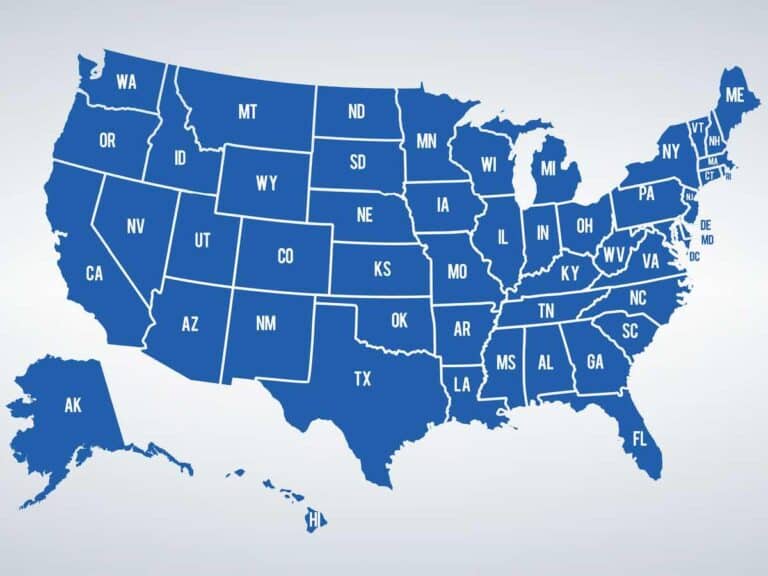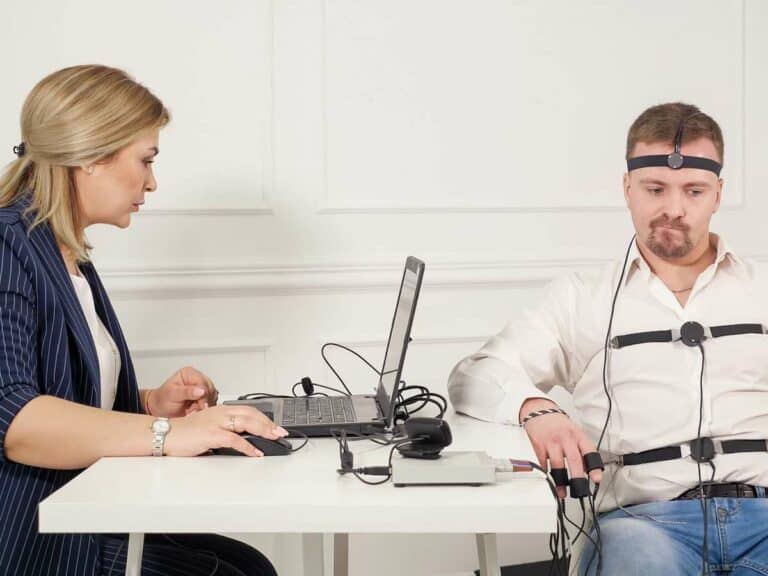7 Countries That Use a Polygraph
Lie detector tests are conducted on numerous TV shows and movies where they prove to be extremely helpful in pinning down evasive suspects and cracking seemingly unsolvable crimes. And when the credits roll, you may find yourself wondering whether or not a polygraph exam is actually performed in real life in many countries.
A polygraph test has admissibility in court in some countries only. Some of them include Belgium, India, Japan and the US. But just because it’s admissible doesn’t necessarily mean it can be used as evidence all the time. In most instances, the use of a lie detector test is subject to restrictions.
Wondering where on the planet a polygraph is used and for what purposes?
In this post, I will talk about the various uses as well as the restrictions and limitations of a lie detector test in some countries. Whether you are about to be subjected to a polygraph examination or planning on being a certified polygrapher, many of the pieces of information you will find below could prove to be helpful.

1. Belgium
Similar to the US, in Belgium, polygraph examinations have admissibility in some jurisdictions.
As a matter of fact, in all of Europe, Belgium has the most prevalence of lie detector test administration. In 2019 alone, for instance, more than 450 exams were carried out.
The practice of conducting polygraph tests, however, came to a halt at the beginning of 2020. It’s for the fact that the law ruled that the document given to an individual who is requested to undergo the examination didn’t contain enough information for it to be considered informed written consent.
Needless to say, it is illegal in Belgium to subject someone to a lie detector test without his or her consent.
In 2021, however, a Royal Decree was passed, which allowed the results of polygraph tests to have admissibility in certain jurisdictions in the European country all over again.
But it’s important to keep in mind that Belgium’s office of the justice minister has made it clear that no one can ever be convicted or acquitted using the outcome of a lie detector exam alone. Because the truth-telling test doesn’t have a 100% accuracy rate, a polygraph report should be taken into account as a support to other pieces of evidence.
Speaking of accuracy, one of the reasons why a lie detector test has no admissibility in some jurisdictions in the country is that the examination has many faults that can affect its accurateness.
One of them is that the examinee can suffer from a great deal of stress, which can then contaminate the result.
Belgium is also one of the very few countries where police officers administer polygraph tests in building a case for individuals suspected of a crime. In the country, the examination is considered correct more than 90% of the time. There have been many instances, too, where a polygraph has led to a confession or breakthrough.
Many locals also seek the assistance of private polygraph examiners in dealing with some family or marital disputes, such as theft and infidelity, they wish to settle outside of the court.
It’s also not uncommon in Belgium for some employers to use a lie detector test in screening candidates.

2. Canada
Police officers and criminal investigators in Canada are allowed to use polygraph examinations for both case-building and investigative purposes. However, lie detector test results generally cannot be used as evidence in court proceedings. Canadian courts find a polygraph both unreliable and risky.
In 1987, in particular during the R. v. Beland case, the Supreme Court of Canada stated that polygraph exam results cannot be introduced as evidence in criminal trials for a number of reasons.
Here are the 4 main reasons why a polygraph cannot be used in Canadian criminal trials:
- It offends the evidence rule against oath-helping. Simply put, this rule prohibits a party from presenting evidence that would bolster his or her witness’ credibility. A polygraph exam result goes against this rule in that its primary purpose would be to add support to the testimony of the accused individual.
- It goes against the rule against admitting consistent out-of-court statements by a witness. The rule states that having another witness testify that the accused told them the very same thing they are telling the judge does not add to the credibility of the accused — the testimony of a polygrapher would be exactly this.
- It opposes the fact that an accused individual may introduce evidence of his or her general reputation although he or she cannot provide specific acts that might tend to establish character. This rule is infringed by a polygraph examination since the result would basically provide proof that the person wasn’t lying.
- It breaches the so-called expert evidence rule. This rule states that an expert, such as a polygraph examiner, may only provide an opinion about something if it will help the judge and jury understand a subject that is outside their understanding. If they can form their own opinion, then a polygraph isn’t necessary.
In Canada, some sensitive jobs where candidates need to get their hands on a clearance require a pre-employment screening polygraph examination to determine integrity and trustworthiness.
A lie detector test in the Canadian province of Ontario, however, is not allowed to be used by police officers for investigative purposes and by employers for screening purposes.

3. India
The result of a polygraph test has admissibility in court in India. As a matter of fact, the first time it was used as a piece of evidence in a trial was in 2008, which involved a woman who was accused of murdering her fiance.
However, before it’s considered admissible, restrictions and prohibitions must be met.
Subjecting an accused individual to a lie detector test, according to Indian law, is permissible only if he or she has provided consent to it. But it’s not enough to simply inform the person that a polygraph examination is warranted — it’s important that he or she is provided with enough information about the test and its effects.
In requesting someone to undergo a polygraph exam, written consent must be issued, which states things such as the reason for having the procedure as well as its implications.
Silence of the person, the law explains, does not equate to consent for the test to be administered.
If a polygraph test is conducted despite the refusal of the subject to go through it, then the result of the examination is regarded as void and therefore cannot be considered by the court of law.
Other than for trial purposes, in India, many people approach private polygraph examiners for an assortment of reasons. As a matter of fact, according to a BBC News report, critics of polygraphy are accusing the growing number of companies in India providing lie detector examinations of taking the law into their own hands.
Some of the most common customers of private polygraphers are employers. Some of them subject job applicants to a lie detector test in order to test their integrity before hiring them. Then there are also those whose goal is to determine whether or not the suspected employee is guilty of a workplace-related crime, such as theft.
According to some polygraphers in India, private citizens approach them to help in settling domestic disputes because seeking the help of the police can be a time-consuming process.
They add that they like the confidentiality of the tests provided by private polygraph experts.

4. Indonesia
Besides public polygraph examiners who administer lie detector tests for purposes such as criminal investigations and court proceedings, there are also private polygraphers in Indonesia conducting the examination for various things, including employment screenings, matrimonial verifications and relationship cheating issues.
In the largest country in Southeast Asia, needless to say, a polygraph is admissible in court.
Hooking suspects up to a polygraph machine is also a popular investigative method in Indonesia. As a matter of fact, it was a pivotal tool in solving the 2002 Bali Bombings.
The said incident, which took place on October 12, 2002, was a terrorist attack that involved the detonation of 3 bombs in Bali, an Indonesian island province recognized as one of the most popular tourist destinations across the planet, which injured 208 people and killed a total of 202 people. The majority of the victims included:
- 88 Australians
- 38 Indonesians
- 28 Britons
Also killed that day were tourists from at least 21 different countries.
In 2022, Ferdy Sambo, a suspect in the murder of Brigadier J, a 27-year-old Indonesian National Police officer, was subjected to a lie detector test. The examination, according to the Head of the Public Relations Division of the Indonesian National Police, took 6 hours to complete.
Polygraph tests, on average, last anywhere from 2 to 3 hours. Some can be shorter, while others can be longer, such as in the case of the testing of the suspect in the Brigadier J murder case.
An act in the US, which we will briefly talk about in a few, prohibits most employers from conducting lie detector tests on their employees as well as those who are applying for jobs. However, it allows some private entities to use a polygraph as a pre-employment screening process.
Undergoing a polygraph examination for screening applicants is also a common practice by some Indonesian businesses and organizations for sensitive positions where integrity and reliability are of utmost importance.

5. Israel
In Israel, lie detector tests do not have any admissibility in criminal courts. However, in some civil cases under certain conditions, it can be used as valid evidence.
Polygraph examinations, for instance, are commonly used in divorce proceedings.
So much so that, in 2020, the Center for Women’s Justice (CWJ), which is a public interest law firm that’s devoted to bringing together specialist lawyers, academics and other experts in the field of violence against women, expressed concern with and opposition to the increasing use of a lie detector test in divorce even when not necessary.
Case in point: a recent divorce case where the woman is represented by CWJ and the man who was mentally and physically abusive and even pleaded guilty to a previous charge of threatening physical harm to the mother of his wife.
According to CWJ, all the pieces of evidence about the behavior of the husband toward his wife as well as the testament of the wife on not having had sex with her husband for 3 years, which the man denied, and request to have divorce should have been more than enough for the court to grant the divorce.
Still, both parties were ordered to take a polygraph exam to determine who was telling the truth.
A lie detector test, other than in certain civil cases, is also employed in Israel as a pre-employment screening process for applicants who are applying for sensitive job positions.
Individuals who are applying as police officers in the Middle Eastern country, for instance, should take and pass a polygraph exam, whose objective is to ensure the ethical and efficient functioning of the Israeli police force as well as the strengthening of public confidence in the police.
But in order to be considered lawful, the decision to conduct a lie detector test must be made in writing, which should include reasons for its administration, and handed to the subject in advance.

6. Japan
It was in 1921 when the polygraph machine as we know it came into being. A little more than 30 years after its inception, in 1953, lie detector tests were gradually introduced in all police headquarters in Japan.
Police and technical officers in each headquarters, as a matter of fact, have been trained as examiners.
Nowadays, it’s not just law enforcers that can undergo formal training to become certified polygraph examiners but also those who graduated from college with a major in psychology or any other related field or discipline.
Anyone who is interested in attending the National Research Institute of Police Science (NRIPS), which is located in Tokyo, must be ready to take and pass, too, competitive entrance examinations. Those who get admitted into the training institution undergo a highly intensive course with an emphasis on research.
In some countries, individuals who wish to become experts in polygraphy must have an undergraduate degree such as criminal justice or law enforcement other than psychology for eligibility to attend an accredited polygraph school. There are instances, too, where any relevant work experience is sufficient.
Each year in Japan, it is said that over 5,000 polygraph exams are performed for criminal investigations.
But other than being conducted by law enforcers for investigative and case-building purposes, lie detector tests are also being performed for use in judicial proceedings. So, in other words, in Japan, a polygraph is admissible in court.
Japanese polygraphers have a preference for the so-called peak of tension test.
Simply put, this method of polygraph testing is designed to cause a guilty individual to show a pattern of responsiveness while he or she is strapped to a lie detector machine. The polygraph examiner asks a series of questions that include multiple answers, though only one is the correct answer.
Was the amount of stolen money equivalent to $25,000? $35,000? $45,000?
As the correct answer approaches, the guilty examinee’s physiological responses increase. On the other hand, they decrease when the correct answer has passed.

7. United States
In the US, the result of a lie detector test is not admissible in court when the jurisdiction or state does not consider a polygraph a valid examination. However, the law allows it to be utilized by various federal, state and local agencies as well as certain private companies and organizations for pre-employment screening purposes.
Based on a report by Wired, approximately 2.5 million lie detector tests are conducted in the US every year, which helps keep the $2 billion polygraphy industry alive and kicking.
A polygraph examination, as of this writing, has admissibility in a total of 23 states.
But before it is accepted as a piece of evidence in jurisdictions or states where it’s considered admissible, both parties must agree to its use before submission. In addition, the result of a polygraph examination will be considered where it has admissibility only when certain criteria in its administration are met, such as the Daubert standard.
It’s also important to keep in mind that a lie detector test is rarely used in criminal cases. In most instances, it’s used as a piece of evidence in civil cases, such as issues that keep people from getting jobs or clearances.
There is an act in the US that prohibits most private employers in the country from conducting polygraph examinations for pre-employment screening purposes or during the course of employment. It’s referred to as the Employee Polygraph Protection Act (EPPA), which became effective in December 1988.
However, the EPPA does not cover some private employers from using a lie detector test in screening candidates for jobs that require a high level of integrity and trustworthiness among employers.
The same is true for law enforcement and various federal agencies such as the FBI and CIA.
Other than public polygraphers, private polygrapher experts, who are required to be licensed in some states, are also sought by civilians for resolving disputes such as infidelity, fraud and drug abuse.






